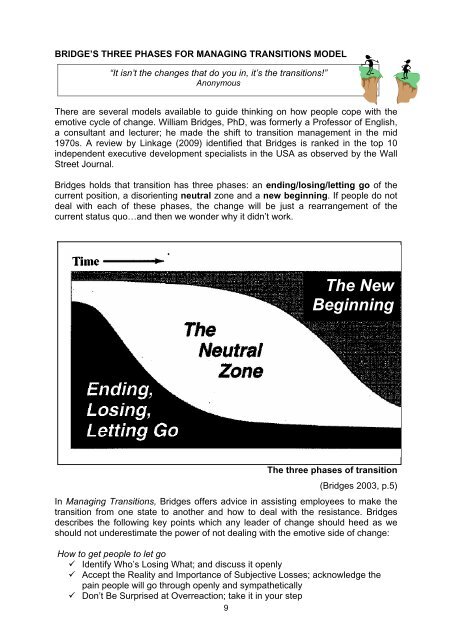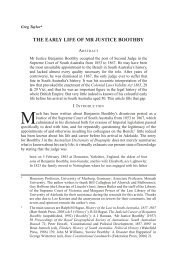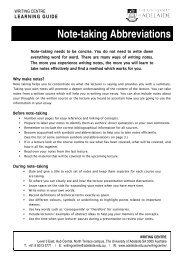Leading Change, Transition & Transformation - University of Adelaide
Leading Change, Transition & Transformation - University of Adelaide
Leading Change, Transition & Transformation - University of Adelaide
Create successful ePaper yourself
Turn your PDF publications into a flip-book with our unique Google optimized e-Paper software.
BRIDGE’S THREE PHASES FOR MANAGING TRANSITIONS MODEL<br />
“It isn’t the changes that do you in, it’s the transitions!”<br />
Anonymous<br />
There are several models available to guide thinking on how people cope with the<br />
emotive cycle <strong>of</strong> change. William Bridges, PhD, was formerly a Pr<strong>of</strong>essor <strong>of</strong> English,<br />
a consultant and lecturer; he made the shift to transition management in the mid<br />
1970s. A review by Linkage (2009) identified that Bridges is ranked in the top 10<br />
independent executive development specialists in the USA as observed by the Wall<br />
Street Journal.<br />
Bridges holds that transition has three phases: an ending/losing/letting go <strong>of</strong> the<br />
current position, a disorienting neutral zone and a new beginning. If people do not<br />
deal with each <strong>of</strong> these phases, the change will be just a rearrangement <strong>of</strong> the<br />
current status quo…and then we wonder why it didn’t work.<br />
The New<br />
Beginning<br />
The three phases <strong>of</strong> transition<br />
(Bridges 2003, p.5)<br />
In Managing <strong>Transition</strong>s, Bridges <strong>of</strong>fers advice in assisting employees to make the<br />
transition from one state to another and how to deal with the resistance. Bridges<br />
describes the following key points which any leader <strong>of</strong> change should heed as we<br />
should not underestimate the power <strong>of</strong> not dealing with the emotive side <strong>of</strong> change:<br />
How to get people to let go<br />
Identify Who’s Losing What; and discuss it openly<br />
Accept the Reality and Importance <strong>of</strong> Subjective Losses; acknowledge the<br />
pain people will go through openly and sympathetically<br />
Don’t Be Surprised at Overreaction; take it in your step<br />
9

















